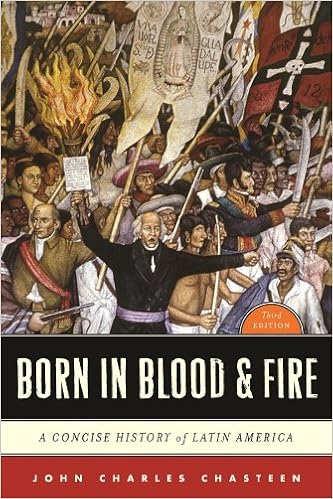Most of the historical non-fiction that I've read so far has been focused on the United States or one of the world wars. It was something of a departure to read Born in Blood & Fire: A Concise History of Latin America by John Chasteen. This book covers Latin America from the first European encounters in the late 15th century up to the present. It's actually a textbook, but I found it remarkably readable. Obviously a 400 page book covering over 500 years and 20 countries can only have go into so much detail. Even so, I think it provided me with an excellent look into the evolution of Latin America and how it came to be what it is today.

What this book really drove home for me is just how insulting it is to say tell people from Latin America to "go back and help fix the totally broken and crime infested places from which they came". This would be a terrible thing to say regardless of the history involved. I had always been aware, in a general sense, that the United States had meddled in the affairs of Latin American countries. I had not idea just how pervasive it was until I read this book. I don't know the best way to approach the many problems faced in Latin America, since attempts by the US to change other countries often have the opposite of the intended effect. What I do know is that the problems these immigrants faced in their home countries are at least partly, if not mostly, our fault.
It's a good book, and I'd highly recommend it to anyone who might be interested in a macro look at Latin American history.

What this book really drove home for me is just how insulting it is to say tell people from Latin America to "go back and help fix the totally broken and crime infested places from which they came". This would be a terrible thing to say regardless of the history involved. I had always been aware, in a general sense, that the United States had meddled in the affairs of Latin American countries. I had not idea just how pervasive it was until I read this book. I don't know the best way to approach the many problems faced in Latin America, since attempts by the US to change other countries often have the opposite of the intended effect. What I do know is that the problems these immigrants faced in their home countries are at least partly, if not mostly, our fault.
It's a good book, and I'd highly recommend it to anyone who might be interested in a macro look at Latin American history.
No comments:
New comments are not allowed.